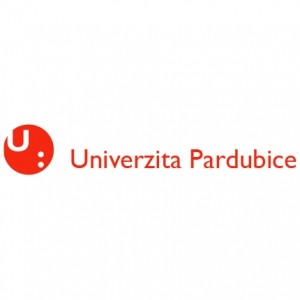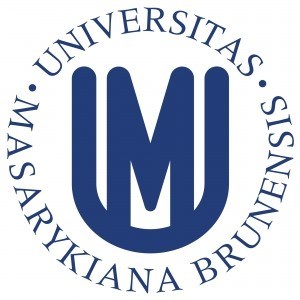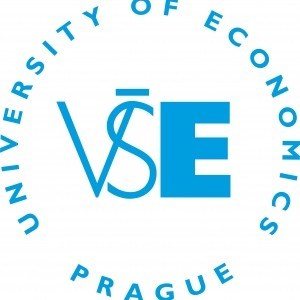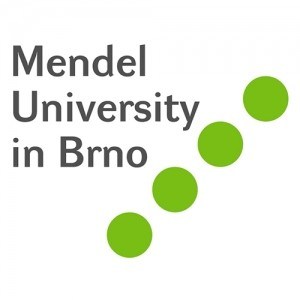Photos of university / #upce_cz
Applied Informatics in Transport at the University of Pardubice offers a comprehensive education aimed at preparing students for the dynamic field of transportation and logistics. This programme combines principles of computer science, information technology, and transport management to equip graduates with the skills necessary to develop, implement, and manage modern transport systems. Throughout the course, students explore various aspects of transport operations, traffic planning, intelligent transportation systems, and data analysis. The curriculum emphasizes practical applications of informatics in transportation, including programming, database management, GIS, and system integration. Students gain hands-on experience through laboratory exercises, projects, and internships, ensuring they are well-prepared for the challenges of the transport industry. The programme also addresses key topics such as transport security, environmental impact, and sustainability, reflecting current trends and demands in the field. Graduates of Applied Informatics in Transport can find careers in transport companies, logistics firms, public transportation agencies, and government institutions overseeing traffic and infrastructure. They will be capable of designing efficient transport solutions, managing data-driven decision processes, and contributing to the development of innovative transportation systems. The University of Pardubice provides state-of-the-art facilities and a supportive academic environment to foster students' technical skills and creative problem-solving abilities. Additionally, students benefit from collaboration with industry partners and access to conferences and seminars, keeping them updated on technological advancements. Upon completion, graduates will be awarded a Bachelor's degree in Applied Informatics in Transport, opening pathways to further specialization or employment in the transportation technology sector. The programme prepares students not only for current industry needs but also for future innovations, making them valuable assets in the evolving landscape of transport and logistics management.
The Bachelor’s degree program in Applied Informatics in Transport at the University of Pardubice is designed to prepare students for a professional career in the field of transport technology, logistics, and information management within the transportation industry. This program offers a comprehensive education that combines fundamental principles of informatics with specialized knowledge related to transport systems. Students will develop a deep understanding of information systems, data analysis, and software applications tailored to transportation processes. The program covers key areas such as transport logistics, traffic management, infrastructure planning, and information technologies used in modern transportation systems.
Throughout the course of study, students will acquire practical skills in programming, database management, and the development and implementation of informational systems. They will learn how to analyze transportation data, optimize routes, and improve the efficiency and safety of transport operations. The curriculum also emphasizes the importance of sustainability and environmental considerations in transport planning. Additionally, students will gain knowledge of transport regulations, business processes, and project management, preparing them for interdisciplinary cooperation within the transport sector.
The program combines theoretical learning with practical training through laboratory exercises, projects, and internships, providing students with real-world experience. Graduates will be equipped to work in various roles such as systems analysts, logistics coordinators, traffic planners, and IT specialists in transportation companies, public transport organizations, and civil infrastructure authorities. The interdisciplinary nature of the program ensures that students are well-prepared to meet the evolving challenges of modern transportation and contribute to innovations in the field. Upon completion, graduates will be fluent in current technologies and methodologies, enabling them to effectively support and enhance transport systems in an increasingly digitized world.
The Applied Informatics in Transport program at the University of Pardubice requires applicants to hold a completed secondary education with a focus that demonstrates strong foundation in mathematics and information technology. Prospective students should possess analytical thinking skills, problem-solving abilities, and an interest in information systems and their applications within the transportation sector. The admission process may include evaluation based on academic records, motivation, and, in some cases, entrance examinations or interviews designed to assess the applicant's suitability for the program.
Once admitted, students are expected to develop comprehensive knowledge of computer science, software engineering, data analysis, and systems development, tailored specifically to transportation and logistics systems. The curriculum emphasizes practical skills in programming, database management, and the utilization of advanced information technologies to optimize transportation processes. Courses cover areas such as transport planning, traffic management systems, GIS (Geographic Information Systems), data modeling, and intelligent transportation systems (ITS).
The program aims to prepare graduates for employment in a variety of fields related to transportation and logistics, including transport planning companies, public transportation authorities, freight carriers, and technology firms specializing in transportation solutions. During their studies, students are encouraged to participate in internships, research projects, and collaborations with industry partners to gain real-world experience and professional connections.
Graduates of the Applied Informatics in Transport program are expected to acquire critical competencies in designing, implementing, and managing information systems that improve the efficiency, safety, and sustainability of transportation networks. They should be capable of applying modern information technology tools to address complex challenges in mobility and logistics, contributing to innovation in the transportation industry. The program also emphasizes the development of teamwork, communication skills, and the ethical use of information technologies, preparing students for leadership roles in their future careers.
The financing of the Applied Informatics in Transport program at the University of Pardubice is primarily covered through a combination of public funding, tuition fees, and supplementary financial sources. As a public university in the Czech Republic, the majority of funding available for this program comes from state allocations allocated by the Czech Ministry of Education, Youth and Sports, which support the academic activities, infrastructure development, and student services necessary for delivering high-quality education. Tuition fees paid by students constitute a significant portion of the program's financing, with the amount varying depending on whether students are Czech or international, EU or non-EU citizens, and whether they are enrolled in full-time or part-time study modes. For Czech and EU students, tuition fees are generally lower due to government regulations and subsidies aimed at promoting accessible higher education. International students from outside the EU are typically subject to higher tuition fees, helping to offset the costs associated with their education.
Additionally, the university actively seeks funding through various research grants, project-based financing, and partnerships with industry stakeholders. These collaborations often provide resources for curriculum development, equipment procurement, and research activities related to transport and applied informatics. Grants from European Union programs, such as Horizon Europe or Operational Program Research, Development and Education (OP RDE), are also tapped to finance student research projects, internships, and the development of innovative transport solutions. Scholarships and financial aid programs are available for talented students, further enhancing the accessibility and diversity of the program. The university also supports students through various loan schemes and work-study opportunities, enabling students to fund their education while gaining practical experience in the transportation and information technology sectors.
Overall, the program’s financial sustainability relies on a diversified funding portfolio, combining government support, student contributions, research grants, and industry collaborations. This ensures that the Applied Informatics in Transport program remains competitive, up-to-date with technological advancements, and capable of providing students with the necessary skills and knowledge to excel in the fast-changing transport industry. Financial planning and management are handled meticulously by the university’s administration to optimize resource allocation and maintain the quality of education.
The Applied Informatics in Transport programme at the University of Pardubice offers students a comprehensive education in the field of information technology as it applies to transportation systems. This interdisciplinary programme combines principles of computer science, information technology, and transport engineering to prepare graduates for careers in designing, implementing, and managing advanced transport information systems. Students acquire knowledge in databases, programming, data analysis, and communication networks, with a focus on their application in logistical and transportation contexts. The curriculum emphasizes both theoretical foundations and practical skills, including the development of software solutions for traffic management, navigation, and logistics planning.
Throughout the programme, students engage in coursework related to algorithms, modeling, simulation, and the integration of ICT systems within transport infrastructure. The education is designed to develop analytical thinking, problem-solving abilities, and technical proficiency, enabling graduates to address real-world challenges such as optimizing traffic flow, improving safety, and enhancing transportation efficiency. The programme also includes opportunities for internships with transport companies and participation in research projects, fostering a strong link between academic learning and industry practice.
Graduates of Applied Informatics in Transport are well-equipped to work in various sectors including public transportation, logistics companies, freight forwarding, traffic management centers, and transportation planning agencies. They may take on roles involving system analysis, software development, project management, and consulting for intelligent transport systems (ITS). The programme prepares students for continuous professional development in a rapidly evolving field, encouraging lifelong learning and adaptability to new technologies such as smart infrastructure and autonomous vehicles.
The University of Pardubice ensures that the curriculum remains aligned with current technological advances and industry needs, making its graduates competitive in the job market. The programme is delivered by experienced faculty members who are engaged in research and applied projects, providing students with up-to-date knowledge and practical insights. Graduates receive a Bachelor’s or Master’s degree (depending on the level of study), which certifies their expertise and opens the door to further academic pursuits or direct employment.
Overall, the Applied Informatics in Transport at the University of Pardubice is designed for students passionate about technology and transport, seeking to develop a specialized skill set that combines IT competencies with a solid understanding of transportation systems. The programme aims to produce graduates capable of contributing to the development of innovative solutions for modern mobility challenges, ultimately helping to create smarter, safer, and more sustainable transport networks.




